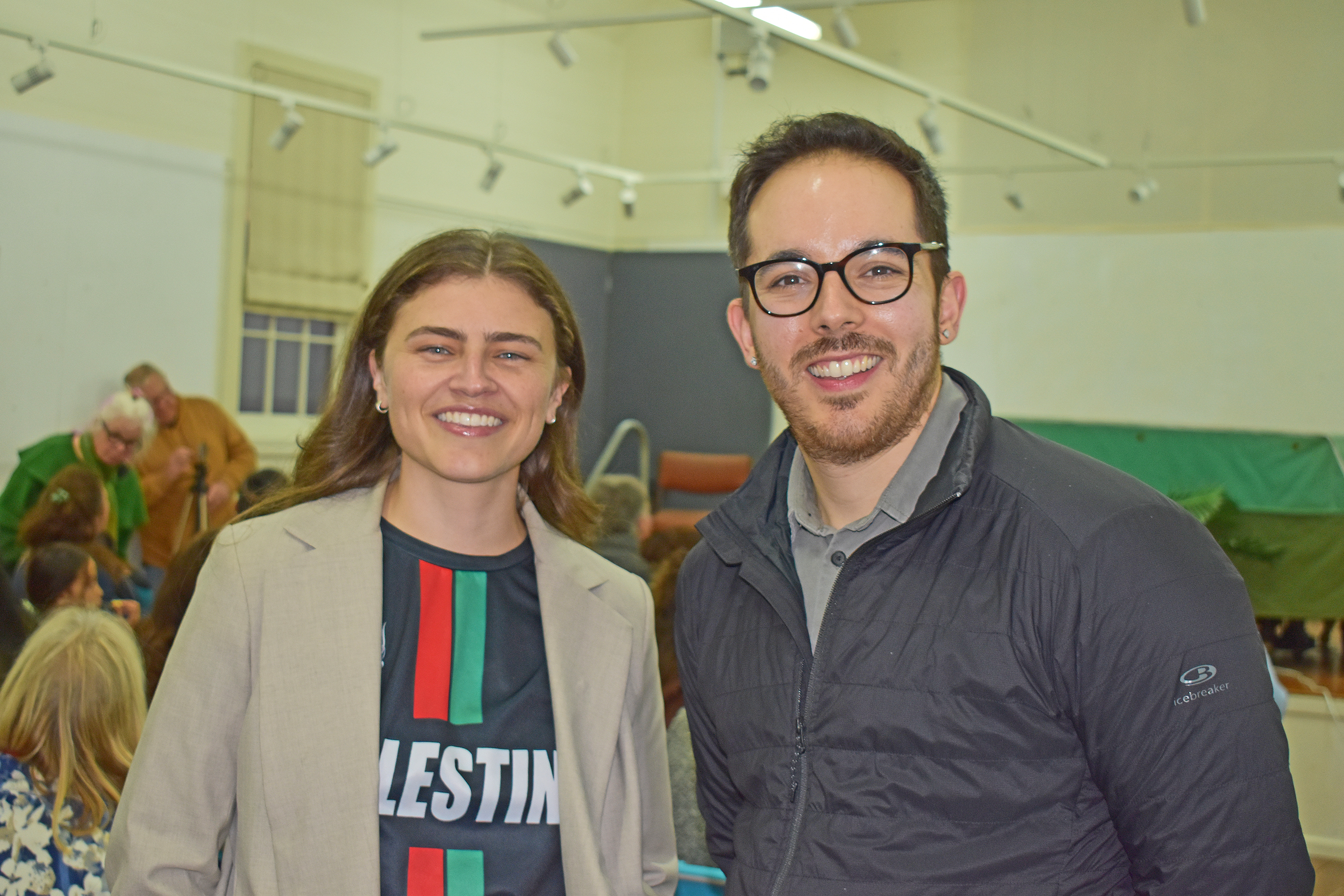Message of hope delivered by Green MPs

GREENS ON TOUR: Green Party MPs Chloe Swarbrick and Ricardo Menendez March were in Ōpōtiki this week to talk about how the Green Budget may work for you. Photo supplied
.
Katherine Langford
Almost 50 people crowded into the Arts Society Hall in King Street on Tuesday evening to join Green Party MPs Chlöe Swarbrick and Ricardo Menéndez March in an honest kōrero about possibilities for our future.
Ms Swarbrick started by asking the room who felt excited about the future, to which one person raised their hand.
She said that, unfortunately, this reflected the general sentiment they had encountered in communities all around the country.
The guests made it clear that they were not here to critique the current government, but to provide a more positive context for what change could look like.
As the two continued speaking, it became apparent that what differentiates the Greens from the current government, and to a certain extent Labour, is their belief in society.
There is ample evidence that over time, Government priorities have been “decoupled” from the real needs of New Zealanders in favour of corporate interests, and, under the current government, enabling wealth generation for the few at the expense of the many.
The policies of the Greens seem positively humane in comparison, and put economic activity where it should be, serving the interests of New Zealand citizens, not the other way around.
They are based on the principles of Te Tiriti o Waitangi, which encompasses ecological wisdom (operating within environmental limits for future generations), and a democratically managed economy where communities and tangata whenua have input into decisions that will affect them.
Ms Swarbrick talked about how decentralised local democracy will play a key role in empowering communities to address their own needs (such as warm, dry housing and food sovereignty, for a start), and that adequate funding of local councils is essential – New Zealand councils receive significantly lower proportions of central taxes than most OECD countries, and funding continues to be diminished.
Let us also sit for a moment and really reflect on what it would be like to have a Government that intervenes on behalf of its own citizens, to break up the supermarket duopoly, the big four banking monopoly and the power company monopolies, so that New Zealanders can afford to live.
It’s not about Government overreach, it’s about balance.
As Ms Swarbrick pointed out, if all of our efforts are not achieving affordable food, amenities, housing, education and health care (aka our human rights), why are we working so hard?
Ultimately, the main message though, is that we have the power to effect change together.
We do not have to passively accept being told what we need and that there is no other way.
Change is up to us, and we make changes by participating in elections at the local and national levels, by asking our politicians questions, and by talking about options for our future with our whānau and communities.
As the kōrero drew to a close we were again asked to raise our hands if we felt excited about the future.
This time there was a sea of hands in response.